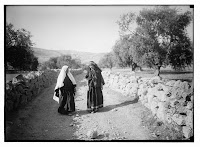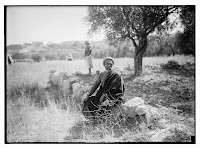Is the Feast of Trumpets Being Fulfilled In Our Day?
Thursday, March 09, 2017 | Brian Hennessy ISRAEL TODAY
As most Christian lovers of Israel now realize, the three major feasts or holy convocations God gave to Israel all pointed to a New Covenant fulfillment in Messiah. The Hebrew word for “convocation,” mikra, implies a “dress rehearsal.”
They were preparations for a deeper spiritual reality.
Although grouped into three convocations, there were actually seven feasts in number, requiring all Israel to be present in Jerusalem at the time of their celebration. They are Pesach (Passover, Leavened Bread, First Fruits), Shavout (Pentecost) and Succoth (Trumpets, Day of Atonement, Tabernacles). Those clustered around Passover and Pentecost are known as the Spring Feasts. Those connected to Tabernacles were the Fall Feasts. Taken together, all seven represent the salvation plan of God in Messiah.
Now we know the Spring Feasts have already had their New Covenant fulfillment.
Passover was fulfilled in Jerusalem when Yeshua was crucified for our sins on the very day the feast was celebrated. And his followers were born again. Pentecost too was fulfilled on the very date, the seventh Sunday after First Fruits, when the Holy Spirit was poured out on the early church.
But Tabernacles still awaits its spiritual fulfillment, which will no doubt also occur in its assigned season. And also take place in Jerusalem.
The question is, could we have actually witnessed the fulfillment of the first of the three fall feasts associated with Tabernacles, namely Trumpets, without realizing it?
I believe so.
It dawned on me recently that when Israel won the Six-Day War and recaptured Jerusalem and the Temple Mount on June, 7 1967 had to be the fulfillment of Trumpets on God’s calendar.
Here’s why.
When the Jews regained control of Jerusalem after 2000 years of exile it was like the blast of a shofar (trumpet) that sent a shockwave that resonated throughout Israel and around the world. Aside from the pure emotional excitement of the event, four major spiritual awakenings trace their beginnings to that day. All were in keeping with God’s assigned purposes for the blowing of trumpets, which were to announce special times, gather His people together, break camp or go to war.
The first awakening took place among assimilated Jews in Russia who suddenly rediscovered their Jewish heritage and wanted to go home to Israel. When Russia refused to let them go they were termed Refuseniks. Their courage in face of great persecution eventually won them international support and permission to emigrate.
A second awakening also occurred among the Jews, primarily in the West, when suddenly thousands began to believe in Yeshua as Messiah. That was the start of the Messianic Jewish Movement.
The third awakening erupted in the Christian world. After seeing the miraculous way Israel recaptured Jerusalem, tens of thousands of Christians suddenly realized God was fulfilling the ancient prophecies of Israel’s restoration. This led many to rediscover the Hebraic roots of our faith, inspiring the Christian Zionism Movement that has done so much to bless Israel as of late.
The fourth big awakening also took place among Christians and became known as the Charismatic Movement. Nominal Christians from the dead mainline churches were born again and began to move in the gifts of the Holy Spirit.
If I am correct in this, it means we are on the verge of seeing the fulfillment of the next holy convocation, which is the Day of Atonement. Called Yom Kippur by the Jews, it is the holiest day on their religious calendar and occurs ten days after Trumpets. Historically on that day the high priest entered the Holy of Holies to make atonement for the whole nation. Also, every fiftieth year on that date the trumpet was blown to announce the Year of Jubilee “when you shall proclaim a release [from all debts]… and each of you shall return to his own property” (Leviticus 25:10). It is the verse inscribed on the Liberty Bell in Philadelphia celebrating the 50th anniversary of the city’s founding.
It really gets exciting when we realize Jun. 7th of this year will be the fiftieth anniversary of the recapture of Jerusalem! Could that mean the Ten Days of Awe following Trumpets are over and God’s Yom Kippur could begin to be fulfilled this very year? Could we actually be on the verge of seeing Zechariah 12:10–14 come to pass in our day?
And one more thing. Could the election of Donald Trump(et) signal the final shofar sound of this feast day ? And if so, will he become the new King Cyrus who many Christians are likening him too? The one who released the Jews from Babylon and helped them restore their temple? Or will he prove to be the new Constantine, “that horn which had eyes and a mouth uttering great boasts… who was waging war with the saints and overpowering them?” (Dan. 7:20,21) Will he be the Great Deceiver “who’ll take his seat in the temple displaying himself as being God” (2 Thess.2:4)?
Stay tuned.
Brian Hennessy is the author of Valley of the Steeples
Want more news from Israel?
Click Here to sign up for our FREE daily email updates
Click Here to sign up for our FREE daily email updates










